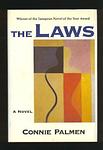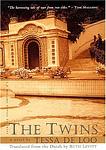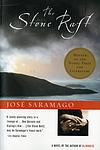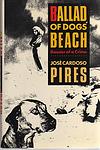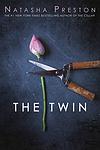The Greatest Portuguese, Dutch "Fiction" Books Since 1980
Click to learn how this list is calculated.
This list represents a comprehensive and trusted collection of the greatest books. Developed through a specialized algorithm, it brings together 300 'best of' book lists to form a definitive guide to the world's most acclaimed books. For those interested in how these books are chosen, additional details can be found on the rankings page.
Genres
Countries
Date Range
Reading Statistics
Click the button below to see how many of these books you've read!
Download
If you're interested in downloading this list as a CSV file for use in a spreadsheet application, you can easily do so by clicking the button below. Please note that to ensure a manageable file size and faster download, the CSV will include details for only the first 500 books.
Download-
1. The Book of Disquiet by Fernando Pessoa
"The Book of Disquiet" is a posthumously published collection of thoughts and musings of a solitary dreamer, who is a Lisbon-based bookkeeper. The book delves into the mind of a man who is discontented with his mundane life and finds solace in dreaming and writing. The narrative is a profound reflection on life, solitude, and the nature of humanity, filled with philosophical insights and poetic language. The protagonist's introspective journey and his struggles with existential despair make it a seminal work in the genre of literary modernism.
-
2. The Year of the Death of Ricardo Reis by José Saramago
The novel is a metaphysical narrative about a doctor named Ricardo Reis who returns to Lisbon, Portugal after learning about the death of his friend. He finds himself in a society on the brink of dictatorship, and as he navigates through his daily life, he encounters his deceased friend's ghost and a hotel maid with whom he begins a love affair. The book explores themes of identity, love, and the nature of reality, set against the backdrop of political turmoil.
-
3. The Discovery of Heaven by Harry Mulisch
"The Discovery of Heaven" is a philosophical novel that explores the relationship between mankind and the divine. The story revolves around two friends, an astronomer and a philologist, who are manipulated by heavenly forces to father a child who is destined to return the Ten Commandments to God. As the narrative unfolds, it delves into complex themes such as friendship, love, art, science, and the existence of God, presenting a thought-provoking analysis of the human condition.
-
4. Blindness by José Saramago
In this dystopian novel, an unexplained epidemic of "white blindness" sweeps through an unnamed city, causing chaos and panic. The government responds by quarantining the afflicted in an abandoned mental hospital, where conditions quickly deteriorate into violence and squalor. Amid the despair, one woman mysteriously retains her sight and guides a small band of the blind, including her husband, through the harrowing ordeal. The novel explores themes of loss, human nature, and the fragility of civilization.
-
5. Baltasar and Blimunda by José Saramago
"Baltasar and Blimunda" is a historical love story set in 18th century Portugal. The narrative follows a maimed soldier, Baltasar, and a young clairvoyant woman, Blimunda, as they navigate the hardships of life during the Inquisition. Their love story is intertwined with the construction of the Convent of Mafra, a grandiose project initiated by the King. The novel explores themes of love, faith, human resilience, and the struggle against political and religious oppression.
-
6. All Souls' Day by Cees Nooteboom
"All Souls' Day" is a novel about a Dutch documentary filmmaker, who, after losing his wife and daughter in a car accident, moves to Berlin to escape his grief. The protagonist becomes entangled in a series of romantic relationships while struggling to come to terms with his loss. The book blends narrative with philosophical musings on memory, loss, and the nature of time, using the city of Berlin as a backdrop to illustrate the protagonist's internal journey.
-
7. Rituals by Cees Nooteboom
"Rituals" is a philosophical novel that explores the lives of three men, each dealing with existential crises in post-World War II Netherlands. The narrative delves into their individual searches for meaning and purpose, their struggles with societal norms, and their attempts to establish personal rituals as a way to create order in a seemingly chaotic world. The book is a profound meditation on the human condition, examining themes of time, death, and the nature of reality.
-
8. Smell of Sadness by Alfred Kossmann
"Smell of Sadness" is a poignant narrative that revolves around a man who, after being separated from his wife during the Second World War, embarks on a journey to find her. The story takes us through the protagonist's experiences, his encounters with various people, and his personal struggles. The book is a deep exploration of human emotions, particularly the profound sadness that permeates through the protagonist's life, making it a moving and thought-provoking read.
-
9. The Gospel According To Jesus Christ by José Saramago
This novel offers a provocative and humanized retelling of the life of Jesus Christ, diverging from traditional biblical narratives. It presents a Jesus who is all too human, grappling with the complexities of life, love, and a sense of destiny. Through a blend of biblical lore and imaginative fiction, the story explores themes of divinity, free will, and morality, challenging readers to reconsider the foundations of faith and the nature of storytelling itself. The narrative delves into Jesus's relationships, his encounters with figures such as God and the Devil, and ultimately portrays a deeply philosophical and introspective version of a figure central to Western civilization.
-
10. Fado Alexandrino by António Lobo Antunes
"Fado Alexandrino" is a complex narrative that follows the lives of four Portuguese men who meet at a dinner in Lisbon to commemorate their return from the colonial war in Mozambique ten years prior. Each man, representing different social classes, recounts his life before, during, and after the war, revealing their personal struggles and the impact of the war on their lives. The novel also reflects the political and social changes in Portugal from the dictatorship era to the revolution and its aftermath.
-
11. The History of the Siege of Lisbon by José Saramago
This narrative revolves around a proofreader named Raimundo Silva, who, while working on a historical text about the Siege of Lisbon, decides to alter history by adding a single word to the text, turning the factual account into a fictional one. This act of rebellion leads him into a relationship with his boss, Maria Sara, and together they explore the consequences of questioning historical facts and narratives. The story also delves into the power of language and storytelling, and the blurred lines between history and fiction.
-
12. Gimmick! by Joost Zwagerman
"Gimmick!" is a novel that explores the life of a young artist in the Amsterdam art scene during the 1980s. The protagonist is caught in a world of excess, parties, drugs, sex, and betrayal while trying to find his place and make a name for himself. The story delves into the struggles of artistic life, the lure of fame and the pitfalls of success, providing a raw and gritty depiction of the times.
-
13. The Laws by Connie Palmen
"The Laws" is a philosophical novel that follows the life of a young woman studying philosophy who becomes intrigued by the concept of laws, both societal and personal. Over the course of seven years, she engages in relationships with seven different men, each representing a different aspect of her studies including a priest, a physicist, an artist, a psychiatrist, a lawyer, a biologist, and a writer. Each relationship provides a new perspective on her quest to understand the laws of the universe and human nature.
-
14. The Twins by Tessa De Loo
"The Twins" is a poignant narrative about twin sisters, separated at a young age due to the Second World War. One sister grows up in the Netherlands under Nazi occupation, while the other is raised in Germany as part of the Hitler Youth. After six decades of separation, they meet again and begin to share their experiences, discovering the impact of the war on their lives and the stark differences in their upbringing. The book explores themes of identity, loyalty, and the long-lasting effects of war on individuals and families.
-
15. The Return Of The Caravels by António Lobo Antunes
In this novel, the ghosts of Portugal's colonial past return to haunt the present, as the caravels from the age of exploration sail back into the Tagus River, bringing with them the historical figures from the 15th and 16th centuries. The narrative weaves together the lives of these returned explorers with those of contemporary Lisbon's denizens, blurring the lines between past and present. Through a series of interconnected stories, the book explores themes of identity, nostalgia, and the complex legacy of colonialism, as characters grapple with the dissolution of the Portuguese empire and the reintegration of its former colonies, reflecting on the impact of history on individual lives and national consciousness.
-
16. Treaty Of The Soul's Passions by António Lobo Antunes
"Treaty of the Soul's Passions" is a profound exploration of human emotions and the complexities of the inner self. Through a series of interconnected stories and reflections, the narrative delves into the depths of love, despair, joy, and suffering, painting a vivid picture of the human condition. The author masterfully weaves a tapestry of characters and experiences, each revealing different facets of the soul's journey through life. With poetic language and rich psychological insight, the book invites readers to confront their own passions and question the nature of existence itself.
-
17. Karingana Ua Karingana by José Craveirinha
"Karingana Ua Karingana" is a collection of poetry that delves into the rich cultural heritage and history of Mozambique. Through vivid and evocative imagery, the author explores themes of love, loss, and the struggles faced by the people of his country. Craveirinha's powerful and poignant verses offer a glimpse into the complexities of Mozambican society, while also celebrating its resilience and beauty.
-
18. The Stone Raft by José Saramago
In this surreal exploration, the Iberian Peninsula breaks off from the rest of Europe and begins to drift across the Atlantic Ocean. As the governments and international community scramble to understand and respond to the phenomenon, five disparate individuals find themselves drawn together on a journey across the newly isolated landscape. Through their experiences and interactions, the narrative explores themes of identity, nationality, and the arbitrary nature of borders.
-
19. Terra Sonâmbula by Mia Couto
"Terra Sonâmbula" by Mia Couto is a captivating novel set in war-torn Mozambique, where two individuals, a young boy and an old man, cross paths and embark on a journey that intertwines their lives. Through their encounters with other characters and their shared experiences, the book explores themes of loss, displacement, and the power of storytelling to heal and provide hope in the face of adversity. The lyrical prose and magical realism elements create a rich and evocative narrative that immerses readers in the complex and haunting world of post-colonial Mozambique.
-
20. Cain by José Saramago
The novel explores the biblical story of Cain and Abel from the perspective of Cain, after he murdered his brother. The author reimagines the Old Testament by having Cain time travel to key events and interact with biblical figures such as Noah and Abraham, challenging the traditional interpretations of morality, justice, and faith. Cain's journey reveals a critical view of God and the paradoxes of the human condition.
-
21. Abessijnse Kronieken by Moses Isegawa
"Abessijnse Kronieken" is a powerful and captivating novel set in Uganda during the tumultuous era of Idi Amin's dictatorship. The story follows the life of Mugezi, a young man navigating through the complexities of love, family, and political upheaval. With richly drawn characters and vivid descriptions, the book explores themes of identity, cultural clash, and the struggle for freedom in a country torn apart by corruption and violence.
-
22. Dancing In The Dark by Caryl Phillips
"Dancing in the Dark" delves into the complex life and career of Bert Williams, a pioneering black entertainer in early 20th-century America. The novel explores Williams' struggles with his racial identity and the societal pressures that come with it, as he performs in blackface to gain acceptance and success in the predominantly white entertainment industry. Through a poignant narrative, the book examines themes of race, performance, and the personal costs of compromise in a society divided by color lines, revealing the emotional and psychological toll of Williams' choices on his personal and professional life.
-
23. Ballad Of Dogs' Beach by José Cardoso Pires
The book is a gripping narrative that delves into the political and social turmoil of Portugal during the 1960s, as seen through the lens of a mysterious crime. When a body washes up on a beach near Lisbon, the ensuing investigation exposes the dark undercurrents of a society under a repressive regime. The story weaves together the perspectives of various characters, including those in power and ordinary citizens, to create a tapestry of intrigue and resistance. The novel's exploration of memory, identity, and the struggle for justice serves as a poignant commentary on the human condition amidst political oppression.
-
24. Always Astonished by Fernando Pessoa
"Always Astonished" is a collection of writings that offers a glimpse into the profound and often perplexing musings of its author, a renowned literary figure known for his philosophical insights and multiple writing personas. The book is a compilation of texts that span various genres, including poetry, prose, and philosophical reflections. It captures the author's unique ability to delve into the complexities of the human soul, existential angst, and the search for meaning in a seemingly indifferent universe. Through a series of contemplative and often contradictory voices, the work invites readers to confront the enigmatic nature of existence and the eternal quest for self-discovery and astonishment at the world.
-
25. The Twin by Gerbrand Bakker
The novel revolves around a middle-aged man who, after his twin brother's accidental death, is left to take care of the family farm and his ailing father in the Dutch countryside. Trapped by duty and familial expectations, he struggles with loneliness and the burden of an unfulfilled life. The narrative delves into themes of isolation, identity, and the profound impact of family dynamics as the protagonist grapples with his past and the stark reality of his present circumstances. The story unfolds against the backdrop of the stark, flat landscape, mirroring the protagonist's internal desolation and longing for a different existence.
Reading Statistics
Click the button below to see how many of these books you've read!
Download
If you're interested in downloading this list as a CSV file for use in a spreadsheet application, you can easily do so by clicking the button below. Please note that to ensure a manageable file size and faster download, the CSV will include details for only the first 500 books.
Download










